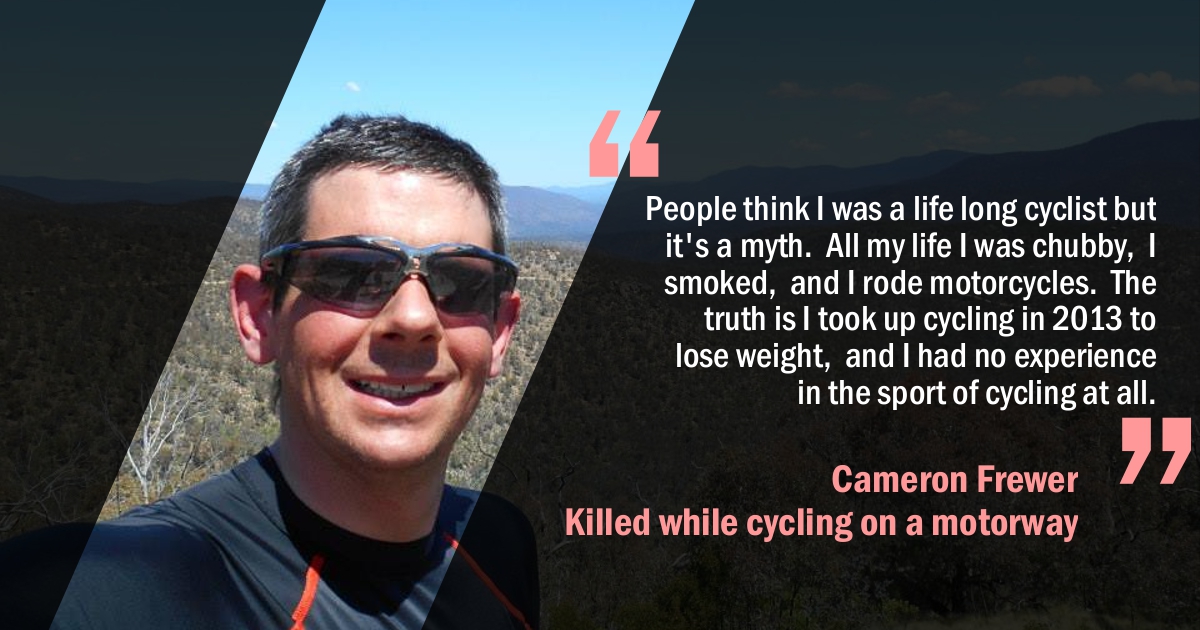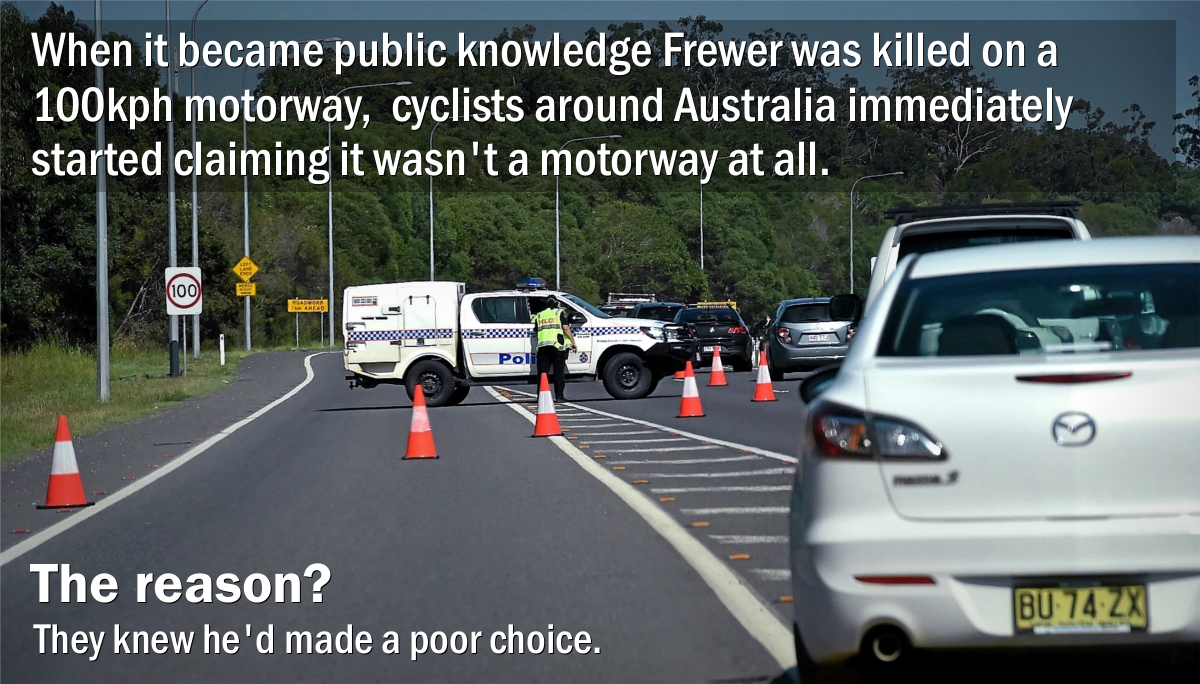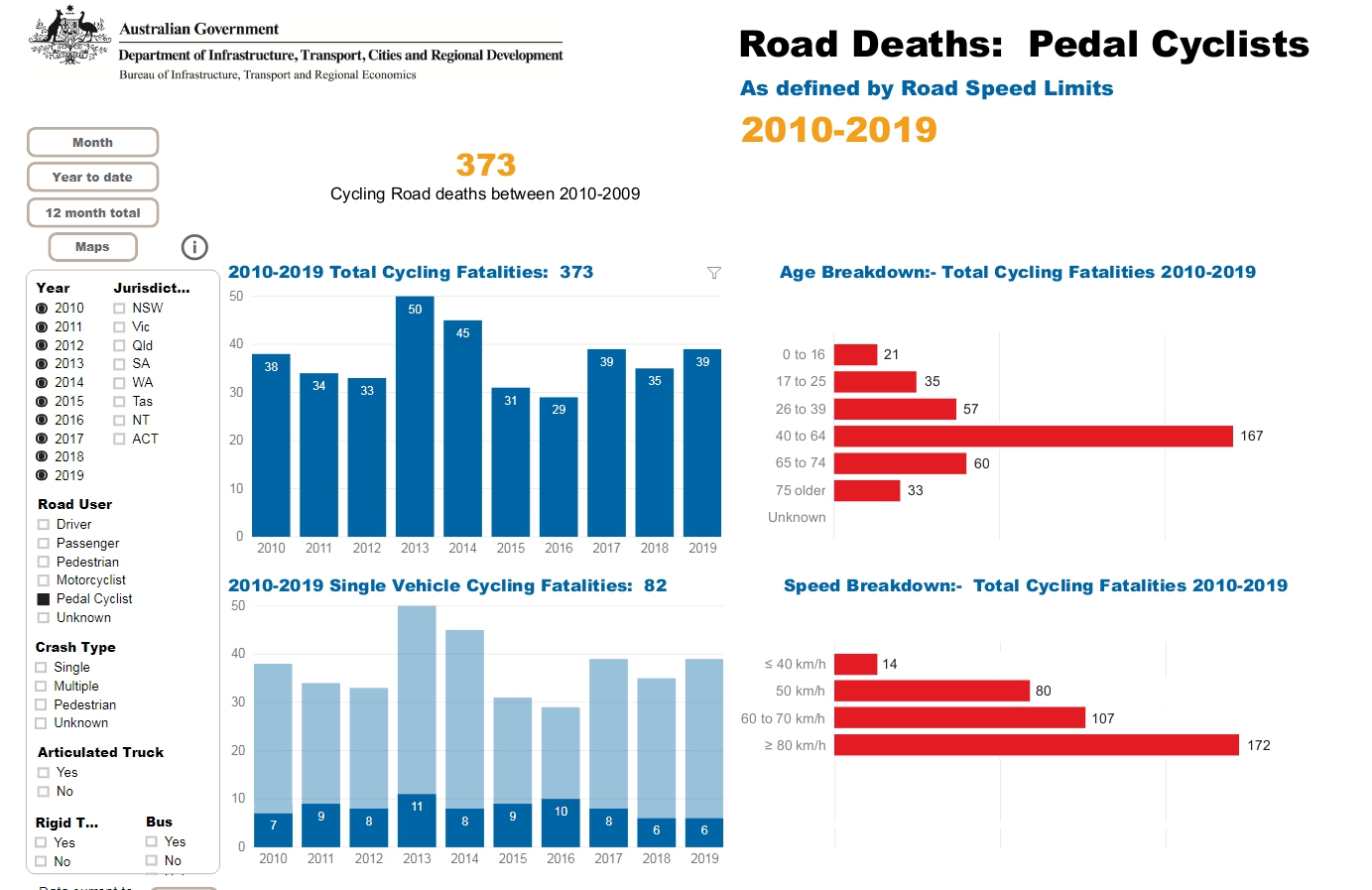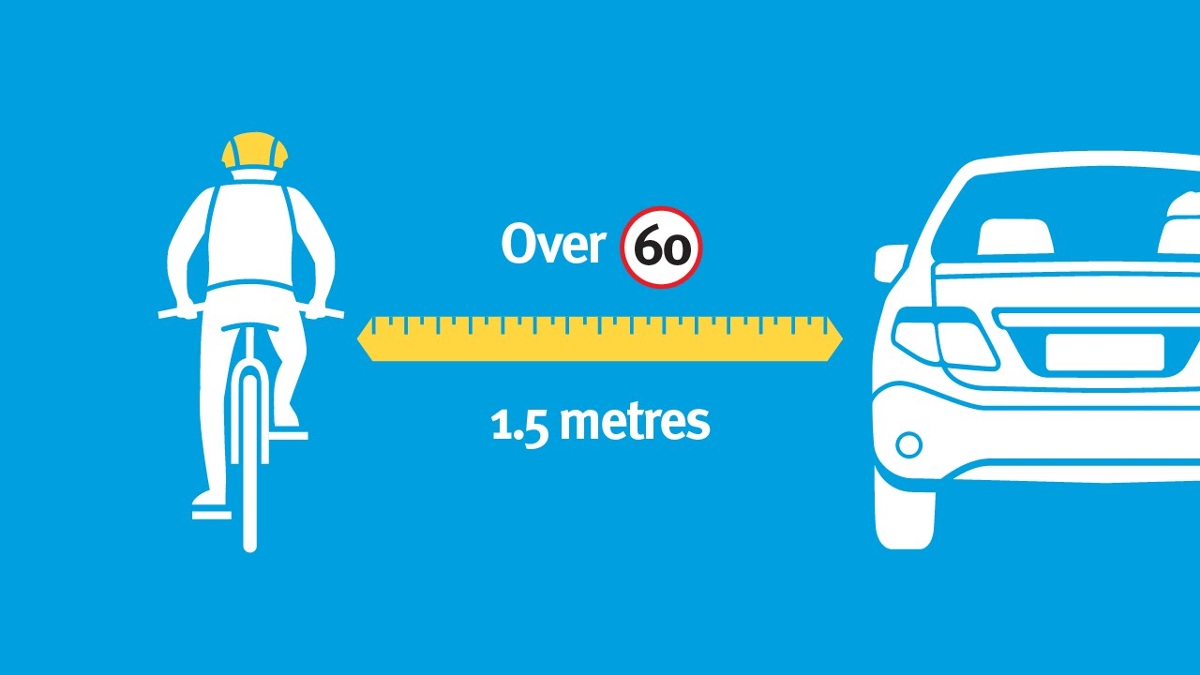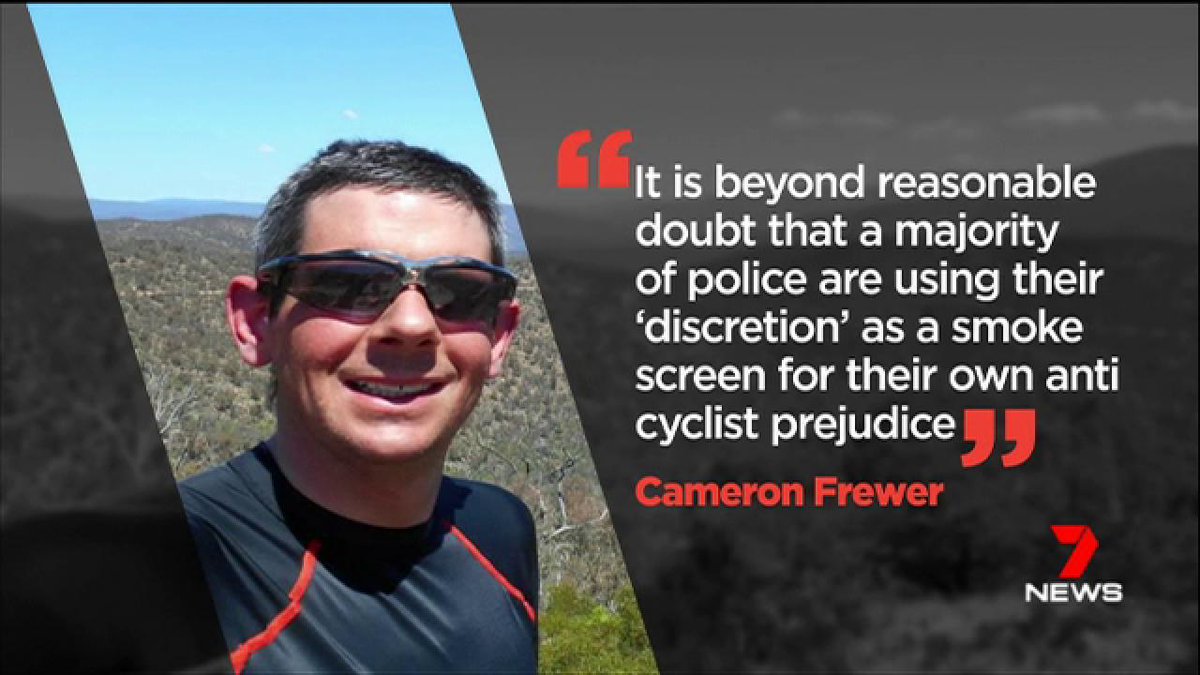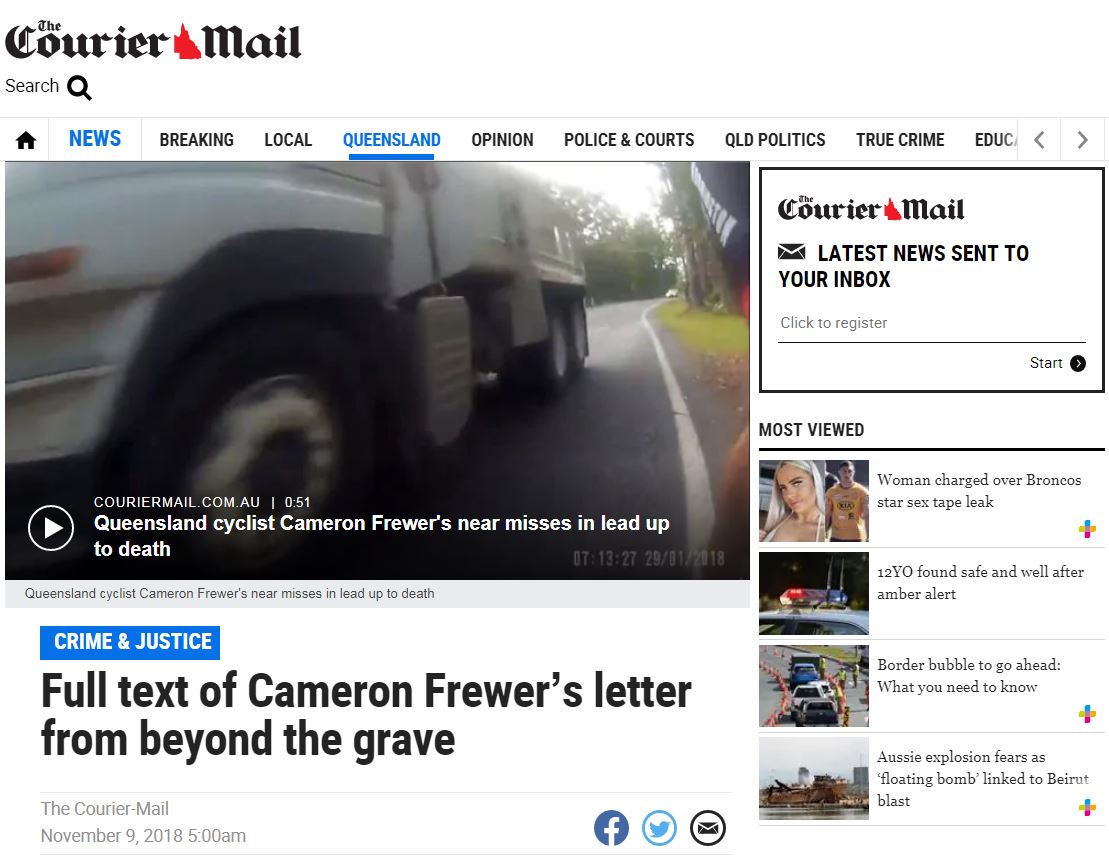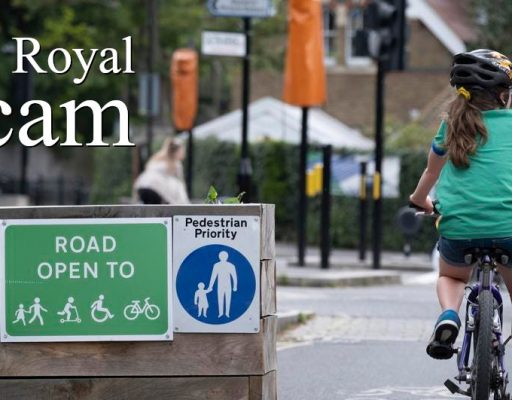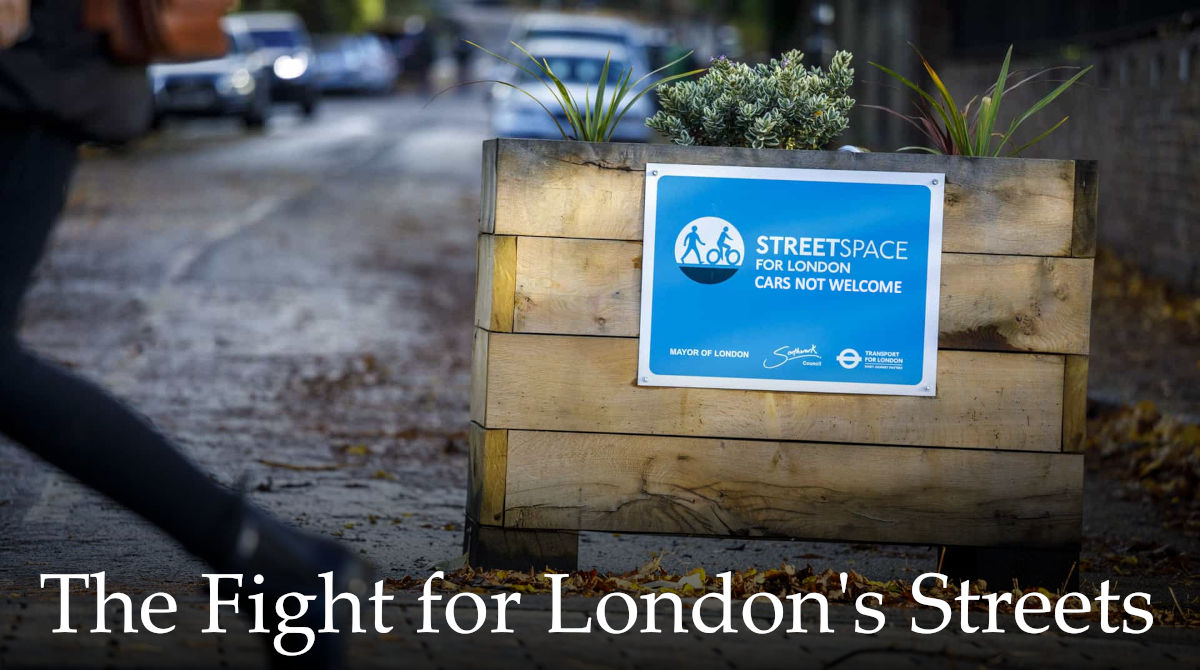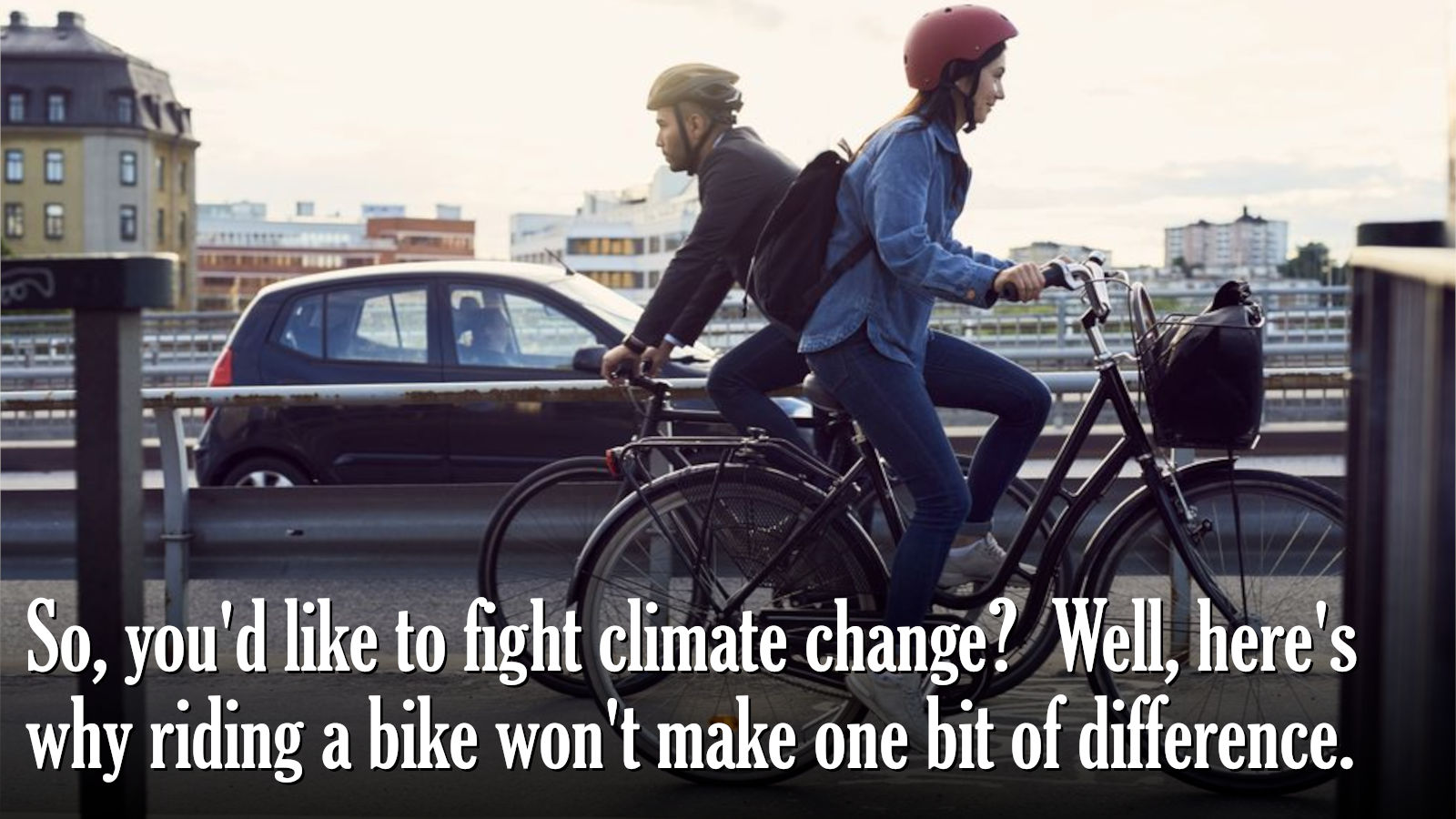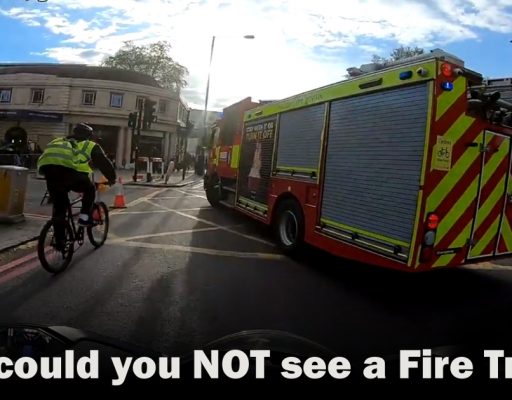Almost certainly, cyclists aren’t going to like this article. That’s the nature of uncomfortable truths. Cyclists are notorious for rejecting articles which contain things they don’t like to hear. But the bottom line is the ultimate victim in this story isn’t Cameron Frewer – it’s the truth.
The main reason this article exists is because the Queensland Police Service has been mercilessly and relentlessly maligned by the Australian cycling community throughout the Cameron Frewer saga, and it’s entirely appropriate the truth is finally given some airtime for once.
First however, some preamble. Not for a moment is anyone saying it isn’t a tragedy when three young children lose a parent to a pointless death – and make no mistake Cameron Frewer’s death was as pointless as you can get. After doing exhaustive research, all the evidence indicates he was a devoted father and a very fine husband. So his death is sad, no doubt.
Nonetheless, the Cameron Frewer story remains a cautionary tale, a story defined by adulation and exploitation, and finally a life washed away by a drug addict behind the wheel of a vehicle.
So let’s start with an ABC headline from the day he died….
For those who don’t know the backstory, Cameron Frewer’s 15 minutes of fame goes roughly like this. After decades of smoking and being chubby, Frewer took up cycling in 2013 to get fit basically. Following countless close calls on motorcycles, Frewer already had a pretty big “chip on his shoulder” regarding car drivers, so he fitted his push bike with GoPro cameras front and back, and he started uploading videos of poor driving to his personal YouTube channel.
He soon attracted the attention of several “extremist” elements in the cycling advocacy landscape – in particular, a highly divisive person named Dave Sharp from Safe Cycling Australia. With Sharp’s assistance Frewer’s profile quickly morphed from raw cycling novice to “cycling safety expert” among the many cyclists out there who militantly believe all bike riders are victims and all motorists are perpetrators.
At first there were quiet rumours perhaps he was choosing to use dangerous roads on purpose.
Those rumours were later confirmed when Frewer moved his family from Victoria to Queensland’s Sunshine Coast in 2017 – and the same syndrome continued. Clearly, Frewer was searching for the most dangerous roads he could find so that he could get the best video action. As a well known former professional noted at the time, “how can one guy have all that bad luck?“
Over time, Frewer started promoting himself as someone who was prepared to die to prove how dangerous cycling is. Of course, big media simply loved that story and eventually Frewer started attracting national headlines as “the cyclist who was predicting his own death.”
On November 5th, 2018, that’s what happened. Frewer was killed instantly while cycling on a 100kph motorway west of Caloundra on Queensland’s Sunshine Coast. The court heard former New Zealander John Taylor was speeding at 110km/h with methamphetamine in his system when he struck Cameron Frewer from behind with his work vehicle.
Right from the moment Frewer’s death was announced on big media, shockwaves emanated throughout the Australian cycling community. But an interesting thing happened. Cyclists immediately started blaming hate speech on social media for his death. They started blaming police inaction for his death. And they happily blamed Australia’s hate-filled car drivers for his death.
And yet nobody had the guts to discuss WHERE Frewer was riding when he died. If you dared to broach THAT subject, you were automatically accused of victim blaming.
It turns out the people who were closest to Cameron Frewer at a political level, people like Dave Sharp from Safe Cycling Australia and Anne Savage from Bicycle Queensland, they were fully aware John Taylor had failed a drug test at the scene. They were aware Taylor was known as a repeat offender yet they said nothing. Instead they repeatedly claimed Frewer’s death was caused by police inaction.
Put another way, they had an agenda and they were determined to pursue it.
While Cameron Frewer is now almost deified as a saint, many cyclists are surprised to learn he wasn’t universally popular when he was still alive. Noted for his condescending tone, he was happy to point fingers at everyone else’s poor behaviour, yet he offered no real solutions. In essence, he was a serial complainer without offering a way to fix what he was complaining about.
Which brings us to Catherine Frewer, the widow of Cameron. Mrs Frewer says she wants to keep his legacy alive. She says she wants his voice to continue. But this raises a legitimate question. What precisely is the message she wants to keep going? You see, among racing cyclists with decades of experience, Cameron Frewer was mostly seen as someone who had no idea what he was doing.
To expand upon this, let’s take a look at some genuine data for a moment.
If you expand the above image you can see some rather interesting data points as provided by the Australian Department of Infrastructure and Transport.
- In Australia, between 2010-2019, a total of 373 cyclists died on Australian roads
- Of those 373 fatalities, a remarkable 22% did NOT involve a motor vehicle. This number is very important for the following reasons.
- Of the 22% of cycling deaths which didn't involve a motor vehicle, only 9 of those deaths occurred on roads with a speed limit equal to or greater than 80kph, and 89% (a total of 73) occurred on roads with a speed limit equal to or LESS than 60kph.
- Of the 172 cycling deaths in the last 10 years which occurred on roads rated at 80kph or higher, fully 94.7% of those deaths (163 in total) involved a motor vehicle.
- Of the 201 cycling deaths in the last 10 years which occurred on roads rated at 60kph or slower, only 63% of those deaths (128 in total) involved a motor vehicle.
The data is pretty hard to ignore. When you remove cycling fatalities which DON’T involve a motor vehicle, the vast majority of fatalities which DO involve a motor vehicle occur on roads rated at 80kph or higher. This data tends to be consistent in almost every Western World country.
Hence, in every possible way, Cameron Frewer fitted the stereotype regarding who is most likely to die while cycling in Australia. He was a middle aged male (44 years), he was riding on a high speed road, and his death involved a motor vehicle.
Given that your chances of survival are essentially 0% when you’re a cyclist and you get hit by a motor vehicle doing 100kph, it does beg the question:- what voice precisely, does Catherine Frewer wish to continue? The voice of denial perhaps?
And this in turn, raises another question. when Cameron Frewer took up cycling in 2013 he was a raw novice. How on earth did someone with so little experience become so famous so quickly?
To understand how a complete cycling novice like Cameron Frewer could suddenly become famous as a “cycling safety expert”, it first helps to understand the inherent flaw which exists in the Minimum Safe Passing Distance legislation – aka ‘The Safe Passing Laws’.
And what is that flaw? Well, the Safe Passing Laws are essentially impossible to enforce in real time. Even in a perfect world, at best, the Safe Passing Laws might be able to act as a deterrent. Possibly. Indeed, from the very start, police recognised this was always going to be the case.
Unlike a known hot spot where police can set up a radar trap and fine people for driving well above the speed limit, the nature of a “dangerous close pass” means that (a) it’s almost always an opinion and (b) it can happen in any location at any time, hence it’s terribly difficult to catch and measure in real time.
Given that police can’t be everywhere at the same time, cyclists soon realised the only way the legislation could ever act as a “true, effective deterrent” would be if cyclists were given much greater powers to act as evidence gatherers on behalf of police. And thus the rise of Cameron Frewer began.
That last claim of course was pure bogus, but it gained traction in the media. In reality Cameron Frewer was deliberately choosing to play the role of victim in an effort to prove a point. And that made him famous. Very famous.
So why exactly is Cameron Frewer’s death the most pointless cycling death of all time? Well, for starters, he wasn’t saying anything which wasn’t already widely known. Seriously, who among us is unaware cycling can be lethally dangerous when we ride on high speed roads?
But there are other reasons too. For example, before he died, it was an open secret Cameron Frewer had lodged more official complaints with police regarding “dangerous close passes” than any other cyclist in any state in Australia. Indeed, he used to brag about it in The Revolution.
For those who don’t know, The Revolution was a private Facebook group which had thousands of members who were exclusively cyclists, and Cameron Frewer was seen as a rock star.
Among cyclists who care about such things, being known as the cyclist who was pestering police with more official complaints than anyone else meant he was a hero. But from a police perspective Frewer was seen as a time waster who was abusing the system in an effort to prove a point.
In reality, the thing that Cameron Frewer was truly complaining about was the legislation itself. What he really wanted was for cyclists to be allowed to collect evidence on behalf of police and then issue fines directly to the public. He wanted to fast track the fine creation process.
Quite understandably, the various case officers who had to deal with Frewer’s incessant complaints reached a view Cameron Frewer was making his complaints for political reasons. As you might expect, Qld Police didn’t appreciate being used as political pawns.
And then there was “the letter from beyond the grave…”
Four days after Frewer’s death, News Limited published a letter written by Frewer before he died; an unsent letter addressed to various government ministers which was in the possession of Anne Savage from Bicycle Queensland.
Anne Savage was Australia’s most famous cycling lobbyist at the time, and she was not above exploiting the media to get a given outcome. Also, Anne Savage was the driving force behind The Revolution, the very Facebook group which enabled Frewer to become famous in the first place.
This is why it helps to understand the feedback loop Frewer was getting from his thousands of fans in The Revolution. With every new complaint, with every new video, his fans cheered him on. There can be no denying “adulation” was a major reason Frewer kept making his videos.
And thus the “false narrative” regarding Cameron Frewer’s death came into being.
The problem with the false narrative created after Frewer’s death is this – it has absolutely nothing to do with how he died. The false narrative claims his death was caused by police failure to prosecute his multiple complaints about dangerous close passes. The truth is Frewer’s death was caused by a drug addict who didn’t care that we’re not supposed to drive cars when we’re high on crystal meth.
It’s an enduring curiosity how some people have their reputations get reshaped after they die. In the case of Cameron Frewer, only the most obtuse cyclist would dare argue Frewer was NOT known to police as a vexatious complainant prior to his passing .
Indeed, by his own admission, he recognised he’d painted himself into that corner too. “There is little doubt I am now being ignored as a ‘pest’, or submitting very close overtaking in a frivolous manner (as noted in the ‘public interest test’ criteria in the police handbook).”
Ultimately this is why Cameron Frewer’s death is the most pointless cycling death of all time. His death, (along with all his videos) have had zero affect on Australia’s cycling road toll. In fact, for the last 25 years Australia’s cycling death toll has averaged out to be 37 cyclists. The year Cameron Frewer died, there were 39 cycling deaths.
The thing Frewer failed to realise was police were already aware of his high profile in the media. They were aware he was claiming “institutional prejudice by police towards cyclists”. Put another way, Frewer needed the police to be on his side yet he was doing everything possible to alienate them.
It’s only when you understand what Cameron Frewer was truly complaining about, namely, cyclists aren’t able to issue fines directly to the public because they’re not cops, only then does it finally become clear just how selfish his actions were in the context of his children.
